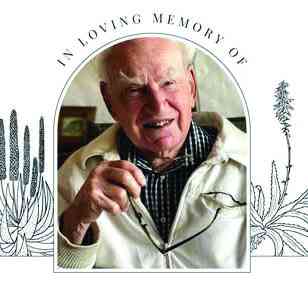
This is not an easy statement to be said by a have-not because that voice is bound to be drowned by the voices of the haves. Who are you to tell the world that riches do not make a person happy? After all you have never tasted having.
Well, one might not have tasted having but what if they have tasted having happiness and have understood that it cannot be obtained by any other method? Was Jesus a have, materially or a have not?
How about the most prominent writer in the new testament, Paul of Tarsus who is known for his famous statement in his epistle to the Philippians 4 verse 12; I have learned the secret of being content in any and every situation, whether well fed or hungry, whether living in plenty or in want.
He was never a rich man yet he learnt the secret we are eager to share here, which is the secret of being happy in a manner that is not attached to anything and promotes productivity in the workplace and beyond.
Do not despair dear reader, we will get to the most important part of this series of articles and I think the most important part is when we define happiness and share what we believe is the method to be used to obtain this happiness and consequently improve performance. We will learn that life, ultimately as we live it now is centred on performance, whichever way we look at it. What we have not found common ground on is the issue of whether there is a clear and sustainable method for raising performance to the levels we want and do so without damaging the saw or making it blunt.
The absence of working and correct methods of using the body and the human resource to perform or the poor management of performance and its relationship to happiness is critical in the whole world but gets very little attention. We are eager to contribute to its being taken seriously by the scholarly fraternity, the people managers, and ultimately the individual in the workplace.
Our task today is to touch on a branch of this subject that has been bothering us and we suspect bothers the reader as well and that issue is whether happiness that is attached to anything is something we can pursue and indeed gain real happiness and thrive with contentment.
A very simple example in the workplace would be the change of leadership. If you have been in the workplace for a long time you have probably been a leader yourself and also have had leaders.
- GRDC in corruption allegations
- Divine insight: Secrets about prophetic timelines
- Grace tidings: Do you understand what it means to be holy?
- Katai fails to make the cut but …
Keep Reading
In big workplace communities you get leaders coming and going and employees in their different roles may really connect with a specific leader and feel a sense of attachment to them for various reasons which may include their good people management skills, their business acumen and sometimes just even their charisma.
What happens in most cases is that when the time for that leader to leave comes, some employees are hurt and it takes long for some to recover. Sadly, some never recover and their happiness and performance are never the same. There we see something that looked like happiness disappearing.
Was it happiness? Well, maybe, but how come it disappeared and its disappearance had such devastating effects on the one who had it?
Let’s imagine that those that worked under that leader do recover because the new leader also begins to show and practice some good leadership skills and boom happiness comes back.
Now my sense is that employees are bound to enjoy that time with a sense of fear of losing the leader and going through pain. Why? Because they have experienced losing a leader. It’s a memory they have and live with. Their level of enjoyment now comes with fear, the fear of losing a leader.
We could think of many other material sources of ‘happiness’ that come and go and instead of making us better, our experience with them leave us worse. A new office, company car, salary increase, promotion, etc, all these come and either go or just wane leaving us looking for something new.
Do these give true happiness? If it’s true and real, how come it comes with such pain sometimes and there is an element of illusion and disillusionment that comes with it? I want to plant that thought in you dear reader so that when we do eventually present our argument of definitions and methods, we do so with that foundation.
Even being attached to want is attachment. To think that poverty is heavenly is to be attached to poverty in the belief that it is the way to have. It is to sit there in want and in waiting for the no more sorrow kind of happiness yet this kind of happiness is about every situation and every situation means exactly that.
Let’s think of a rich man or one who holds a big position at work and makes a lot of money.
He has everything but lapses into moments of existential questions, questions of worry about this and that and the biochemicality of that.
Questions of what will happen to his job if his leader changes? Whether he will keep the job forever or not, I mean, what with even workplace stalwarts such as Steve Jobs having lost their jobs at some point even as they had founded their companies. They are suffering internally and they are happfraid. This is our own word we wish to use to grow the understanding of this important issue.
One who is happfraid in our opinion is one whose happiness is based on something they have and they sit there ‘enjoying’ it but internally there is turmoil because they are concerned about whether they will keep it forever or not, and even the desire to keep it forever. They even sit there wishing God could understand they need not die. This is poor richness and such a person’s performance levels may go down because of this turmoil.
We love our jobs, our offices, our colleagues, the cars we get as perks and many other things. Outside work we also have a lot of things we love, our children, beautiful spouse if we have any, our house, and livestock but the danger is what happens inside us that we are not in control of, the biochemical process that is triggered by the minutest thing, the thought.
We think and disaster ensues inside us leaving us unhappy and making performance suffer in the process. Is there a way then, a method that works to surpass this type of “happiness” and sort of find and enter the real promised land flowing with happiness and performance? This is something we wish to share with you dear reader. Let’s connect again next week.
- Bhekilizwe Bernard Ndlovu’s training is in human resources training, development and transformation, behavioural change, applied drama, personal mastery and mental fitness. He works for a Zimbabwean company as Human Capital Executive, while also doing a PhD with Wits University where he looks at violent strikes in the South African workplace as a researcher. Ndlovu worked as a human resources manager for several blue-chip companies in Zimbabwe and still takes keen interest in the affairs of people and performance management. He can be contacted on bhekilizweb.bn@gmail.com










